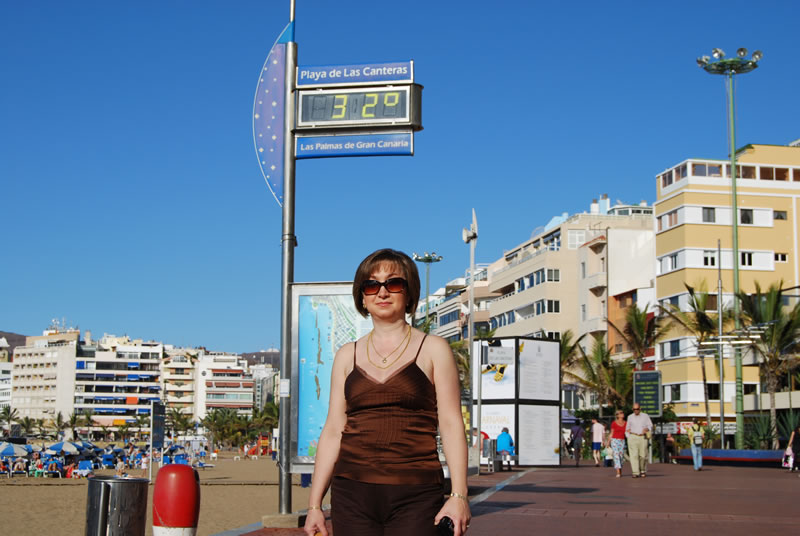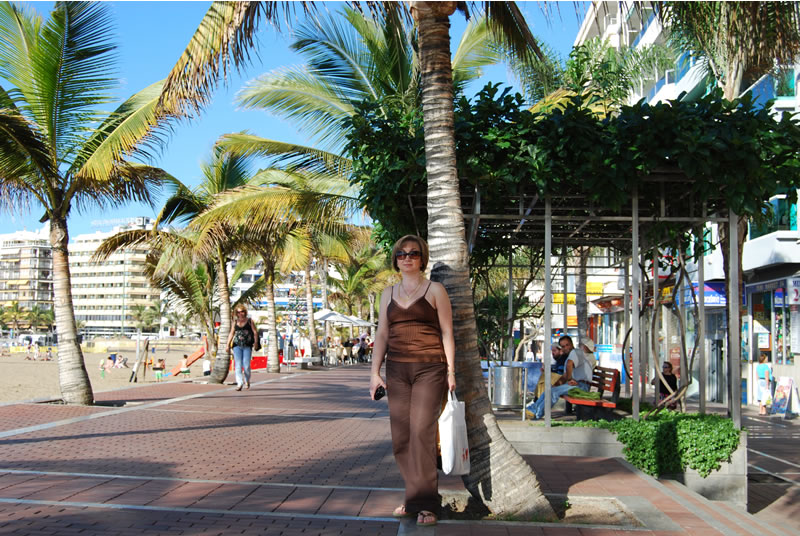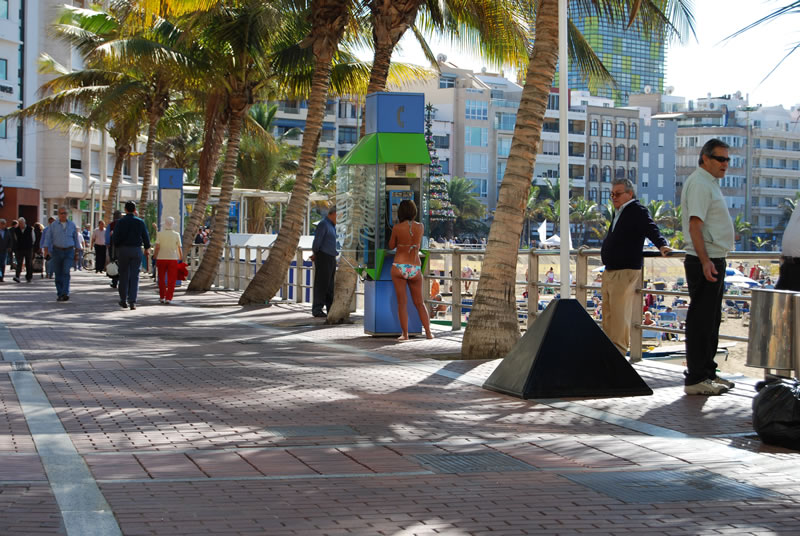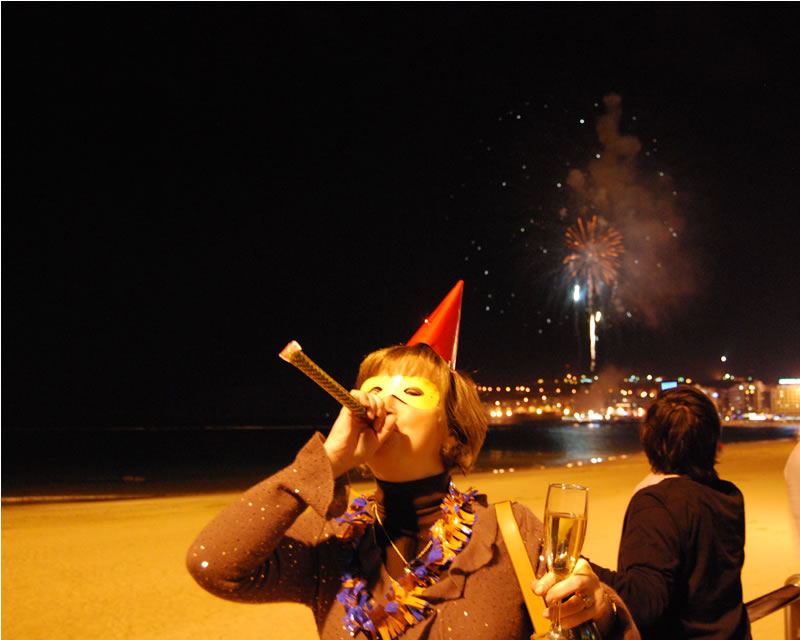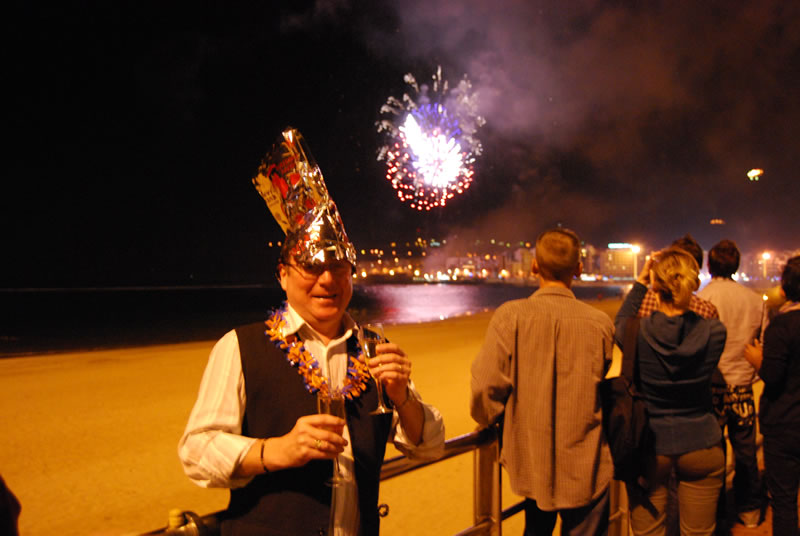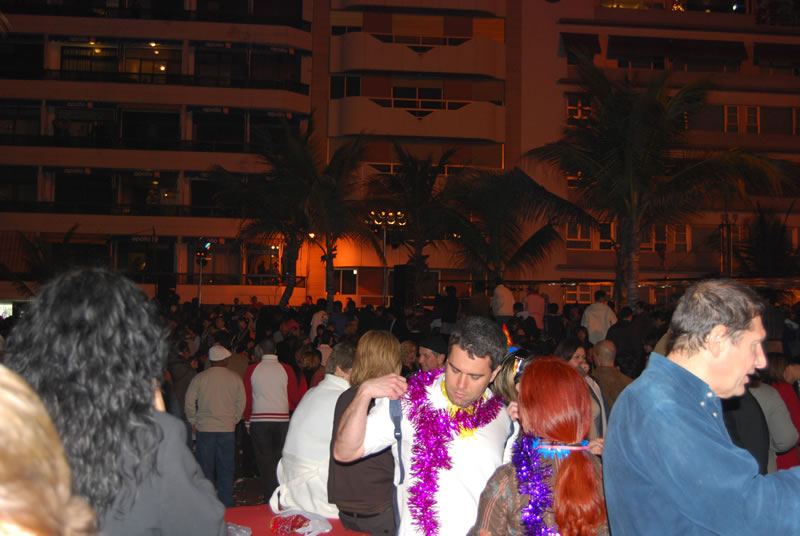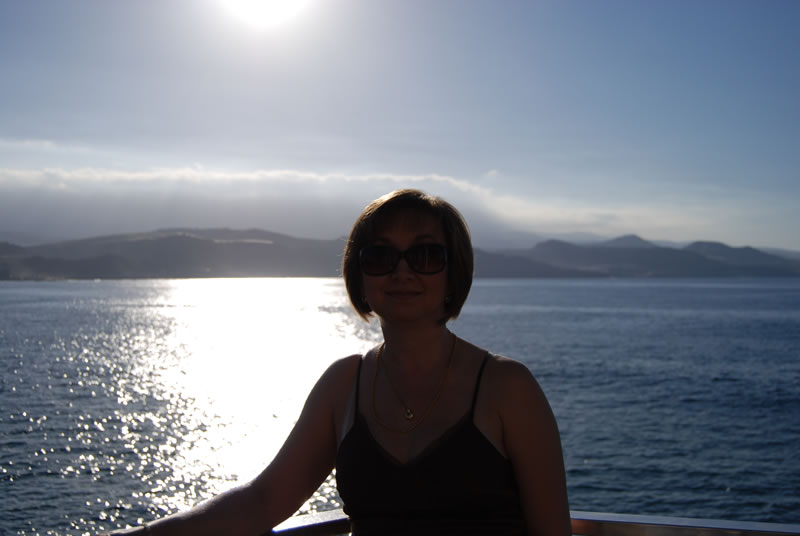Local/Universal creeping into Google paid results.
Last year, Google started beta testing including the plus box and maps in paid results. I saw one example, but didn't see any more. That is until last weekend when I was searching for a specific brand.
B&Q in the UK is pretty much like Lowe's in the US. I wanted to order something from the local warehouse. So, lazy as I am, I just typed b&q at Google to click on store finder in the site links.
Interestingly, even though I was searching from my home in Newcastle, I spotted a paid result at the top of the page with a local result and plus box combined... For a store in Scotland!
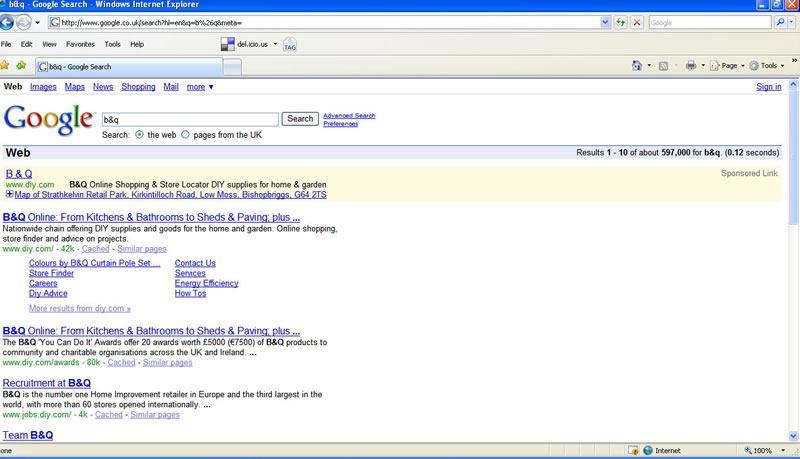 Anyway, I couldn't resist hitting the plus box to see what would happen to the organic results.
Anyway, I couldn't resist hitting the plus box to see what would happen to the organic results.
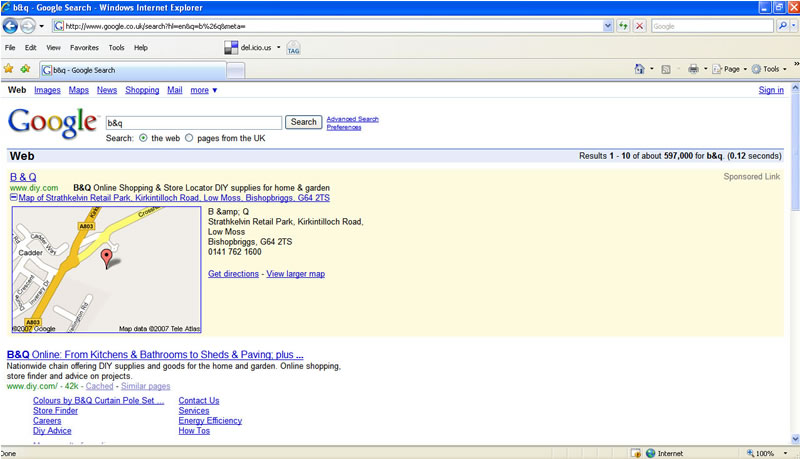 And, as you can see, it was a big goodbyeeee, except for the number one organic result (which happened to be B&Q anyway, of course).
And, as you can see, it was a big goodbyeeee, except for the number one organic result (which happened to be B&Q anyway, of course).
So, I tried a more specific local search - b&q newcastle upon tyne. And got this.
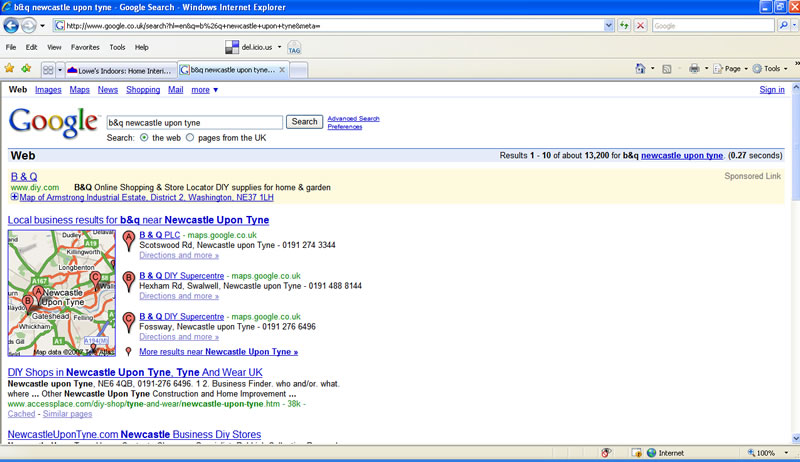 Close, but not quite. I get a paid plus box local result for Washington (that's a town close to Newcastle - where the original Washington family comes from). So, not a bad try. And of course, when I hit the plus box, all of the organic results disappeared completely and only the paid result and local results remained above the fold.
Close, but not quite. I get a paid plus box local result for Washington (that's a town close to Newcastle - where the original Washington family comes from). So, not a bad try. And of course, when I hit the plus box, all of the organic results disappeared completely and only the paid result and local results remained above the fold.
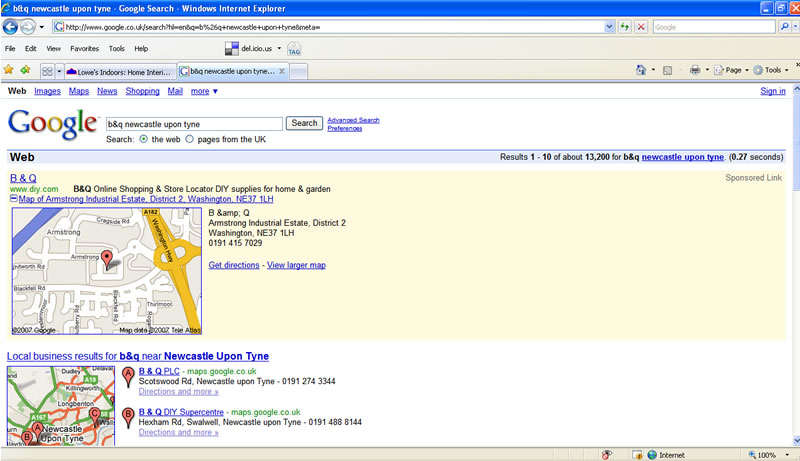 I thought I'd try and recreate the results so that I could get the screen caps. And lo-and-behold... When I try a search for b&q Newcastle upon tyne, this time, I get this.
I thought I'd try and recreate the results so that I could get the screen caps. And lo-and-behold... When I try a search for b&q Newcastle upon tyne, this time, I get this.
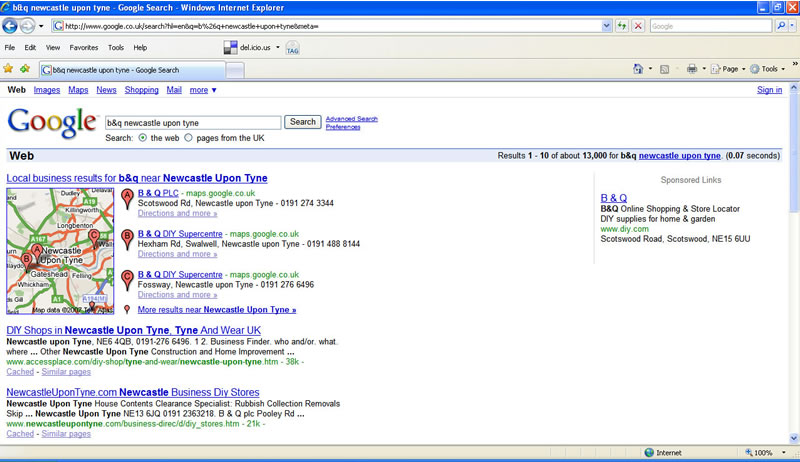 Notice, this time the ad is to the right hand side. But I can see immediately, this time it is for the store closest to me. But no plus box.
Notice, this time the ad is to the right hand side. But I can see immediately, this time it is for the store closest to me. But no plus box.
Cut a long story short, after a while of getting different results I realized that Google was tracking me. So, I started doing searches and after two or three I then flushed the system completely. Coming back, effectively I was a new user each time. My first search for b&q Newcastle after flushing the system brought me this.
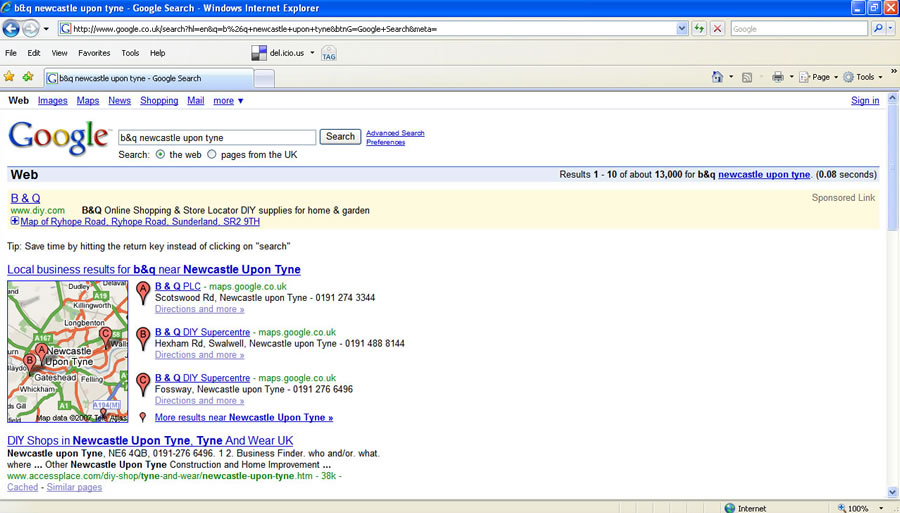 Now that's a local result for Sunderland which is a city about 14 miles from Newcastle.
Now that's a local result for Sunderland which is a city about 14 miles from Newcastle.
So now I do another search for b&q newcastle upon tyne. This time I get this. It's a result on the side, but promoting the B&Q store in Durham, a small city about 20 miles away (strangely enough, closer to Sunderland, the city in the screen cap above).
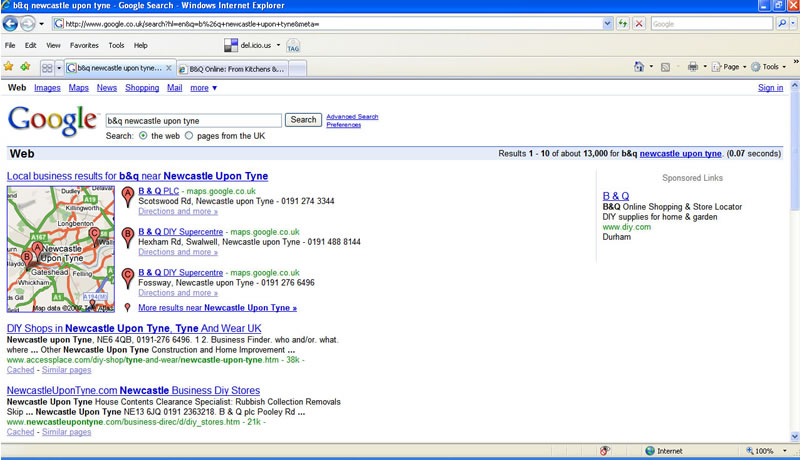 Okay, flush the system again and do the same search. This time I get this.
Okay, flush the system again and do the same search. This time I get this.
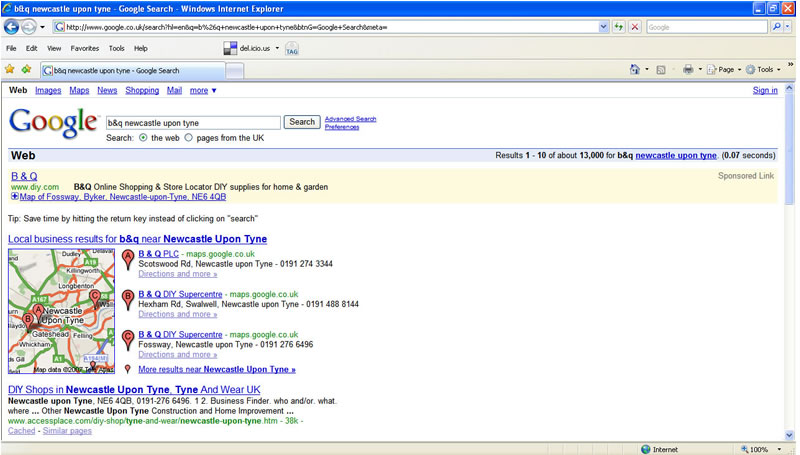 Now this is a proper Newcastle result, for a store on the other side of town.
Now this is a proper Newcastle result, for a store on the other side of town.
One more search for b&q newcastle upon tyne and this time, I get.
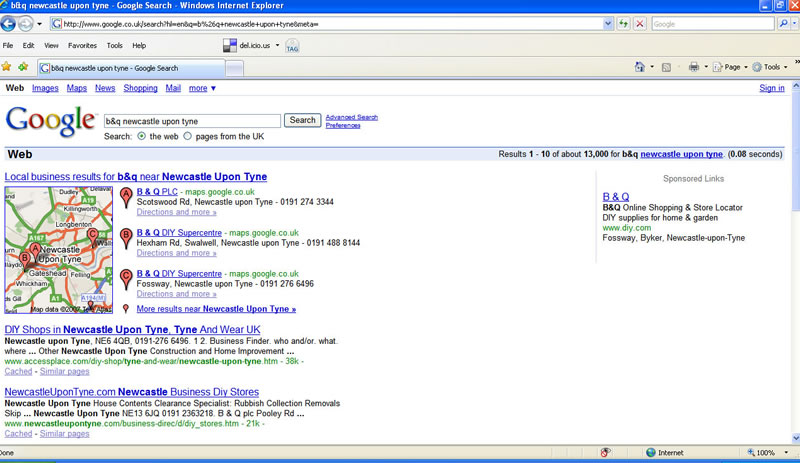 And so it goes.
And so it goes.
The plus box and map only shows in results at the top of the page, not the side column. Of course, that kind of suggests that, should Universal/blended results (such as video) start to creep into paid results - goodbye organic results (pushed below the fold each time the plus box is clicked.
In my ClickZ column (Monday 14 Jan) I've written about the diminishing value of the SEO shop. I'm certainly seeing (and hearing about) search marketers getting much better results when they concentrate more on marketing themselves online.
Links are still good. Really good in fact. But Web 2.0 (shall we just call that the broadband era?) presents search engines with all kinds of new signals. And in turn, that enables them to provide their end users with a much richer experience.
People are voting for content in so many different ways online. Tagging, rating, reviews, blogs, forums, podcasts and video, there's a lot of user generated data to pick up on. It's not hard for search engines to pick up what are the highest rated videos at YouTube and elsewhere online. It's not hard for them to find out what's big at Digg and del.icio.us and tons of other similar sites.
The entire search landscape is changing. And yet, as I mention in my ClickZ column, while search engines are taking advantage of the wealth of new signals Web 2.0 brings, a huge part of the search marketing industry is still preoccupied with the minutiae of on page optimization. It's just so 1999.
It's now six years since I wrote a pretty comprehensive book on search engine optimization. I've had the draft chapters for the follow ready for a long time. But the reason I haven't yet published, is I now realize that a large part of what I wrote in the last edition is just not so relevant now (and the dozens of other books just like it).
That's why I shelved it and I'm now working hard on an entirely new book, which I believe will be so much more relevant to search marketing in 2008.
I'm launching a brand new site to run in tandem with working on the new book. But more about that in a few weeks when the site is ready to go.
I'm very excited about it.
Last year, Google started beta testing including the plus box and maps in paid results. I saw one example, but didn't see any more. That is until last weekend when I was searching for a specific brand.
B&Q in the UK is pretty much like Lowe's in the US. I wanted to order something from the local warehouse. So, lazy as I am, I just typed b&q at Google to click on store finder in the site links.
Interestingly, even though I was searching from my home in Newcastle, I spotted a paid result at the top of the page with a local result and plus box combined... For a store in Scotland!
 Anyway, I couldn't resist hitting the plus box to see what would happen to the organic results.
Anyway, I couldn't resist hitting the plus box to see what would happen to the organic results. And, as you can see, it was a big goodbyeeee, except for the number one organic result (which happened to be B&Q anyway, of course).
And, as you can see, it was a big goodbyeeee, except for the number one organic result (which happened to be B&Q anyway, of course).So, I tried a more specific local search - b&q newcastle upon tyne. And got this.
 Close, but not quite. I get a paid plus box local result for Washington (that's a town close to Newcastle - where the original Washington family comes from). So, not a bad try. And of course, when I hit the plus box, all of the organic results disappeared completely and only the paid result and local results remained above the fold.
Close, but not quite. I get a paid plus box local result for Washington (that's a town close to Newcastle - where the original Washington family comes from). So, not a bad try. And of course, when I hit the plus box, all of the organic results disappeared completely and only the paid result and local results remained above the fold. I thought I'd try and recreate the results so that I could get the screen caps. And lo-and-behold... When I try a search for b&q Newcastle upon tyne, this time, I get this.
I thought I'd try and recreate the results so that I could get the screen caps. And lo-and-behold... When I try a search for b&q Newcastle upon tyne, this time, I get this. Notice, this time the ad is to the right hand side. But I can see immediately, this time it is for the store closest to me. But no plus box.
Notice, this time the ad is to the right hand side. But I can see immediately, this time it is for the store closest to me. But no plus box.Cut a long story short, after a while of getting different results I realized that Google was tracking me. So, I started doing searches and after two or three I then flushed the system completely. Coming back, effectively I was a new user each time. My first search for b&q Newcastle after flushing the system brought me this.
 Now that's a local result for Sunderland which is a city about 14 miles from Newcastle.
Now that's a local result for Sunderland which is a city about 14 miles from Newcastle.So now I do another search for b&q newcastle upon tyne. This time I get this. It's a result on the side, but promoting the B&Q store in Durham, a small city about 20 miles away (strangely enough, closer to Sunderland, the city in the screen cap above).
 Okay, flush the system again and do the same search. This time I get this.
Okay, flush the system again and do the same search. This time I get this. Now this is a proper Newcastle result, for a store on the other side of town.
Now this is a proper Newcastle result, for a store on the other side of town.One more search for b&q newcastle upon tyne and this time, I get.
 And so it goes.
And so it goes.The plus box and map only shows in results at the top of the page, not the side column. Of course, that kind of suggests that, should Universal/blended results (such as video) start to creep into paid results - goodbye organic results (pushed below the fold each time the plus box is clicked.
In my ClickZ column (Monday 14 Jan) I've written about the diminishing value of the SEO shop. I'm certainly seeing (and hearing about) search marketers getting much better results when they concentrate more on marketing themselves online.
Links are still good. Really good in fact. But Web 2.0 (shall we just call that the broadband era?) presents search engines with all kinds of new signals. And in turn, that enables them to provide their end users with a much richer experience.
People are voting for content in so many different ways online. Tagging, rating, reviews, blogs, forums, podcasts and video, there's a lot of user generated data to pick up on. It's not hard for search engines to pick up what are the highest rated videos at YouTube and elsewhere online. It's not hard for them to find out what's big at Digg and del.icio.us and tons of other similar sites.
The entire search landscape is changing. And yet, as I mention in my ClickZ column, while search engines are taking advantage of the wealth of new signals Web 2.0 brings, a huge part of the search marketing industry is still preoccupied with the minutiae of on page optimization. It's just so 1999.
It's now six years since I wrote a pretty comprehensive book on search engine optimization. I've had the draft chapters for the follow ready for a long time. But the reason I haven't yet published, is I now realize that a large part of what I wrote in the last edition is just not so relevant now (and the dozens of other books just like it).
That's why I shelved it and I'm now working hard on an entirely new book, which I believe will be so much more relevant to search marketing in 2008.
I'm launching a brand new site to run in tandem with working on the new book. But more about that in a few weeks when the site is ready to go.
I'm very excited about it.

